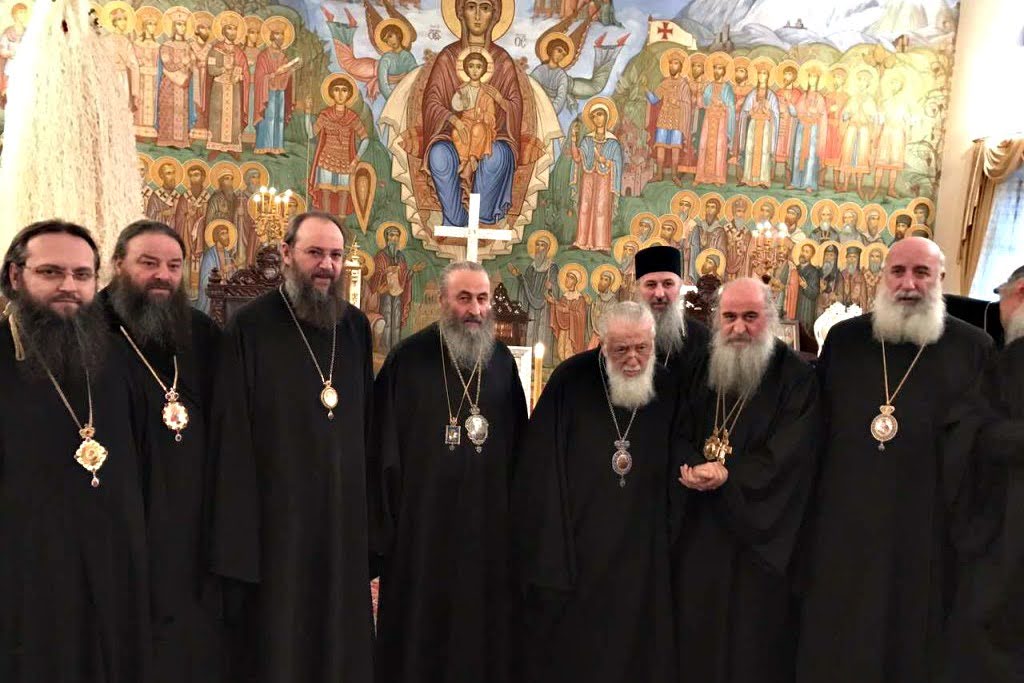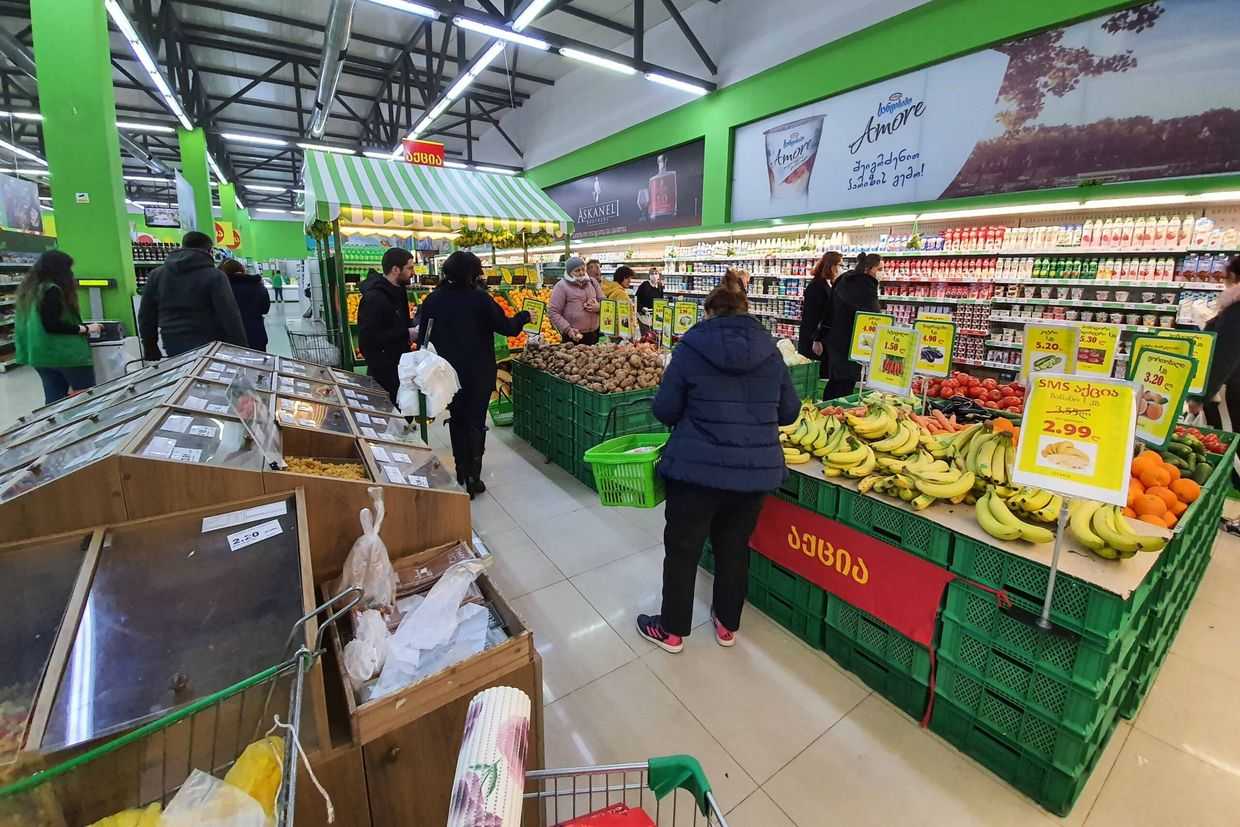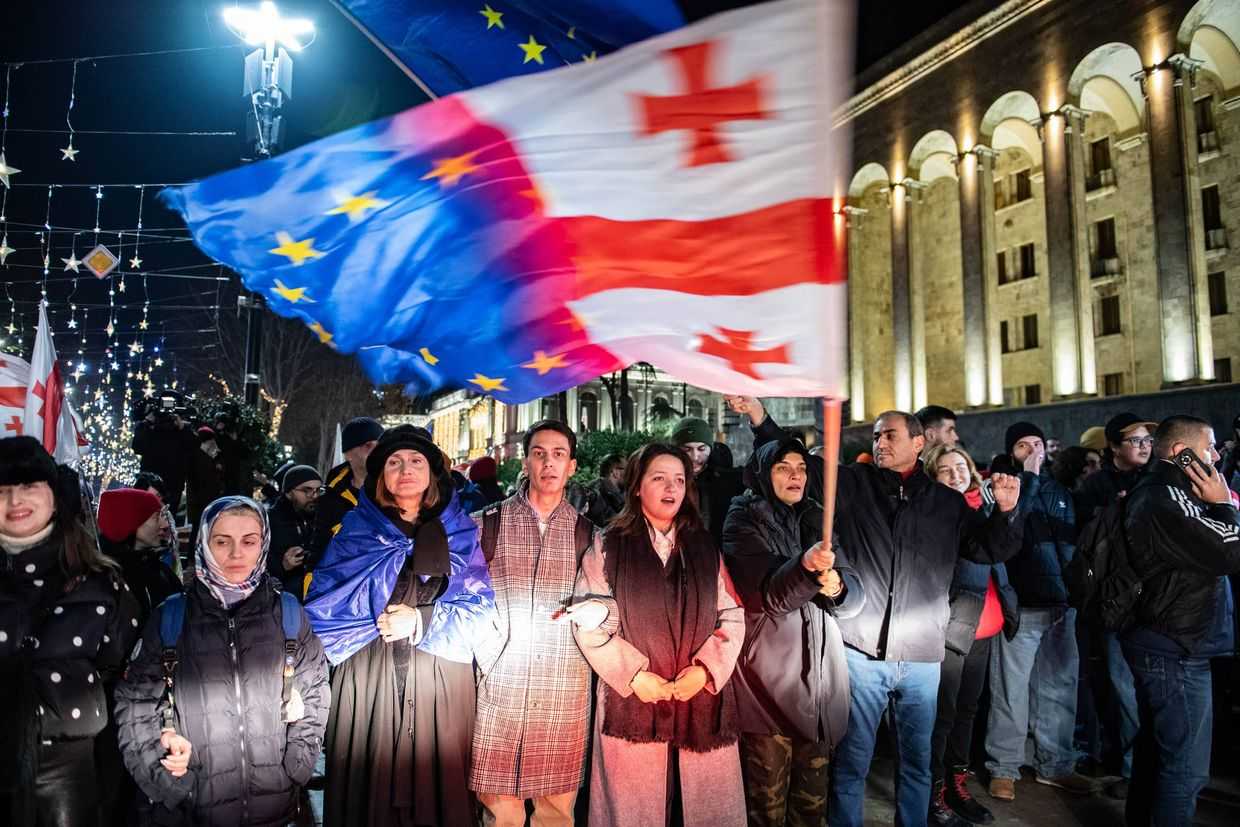
The head of the Georgian Orthodox Church has criticised Kyiv’s plan to evict a Russia-linked church from its headquarters in the city.
On Saturday, Patriarch Ilia II appealed to Patriarch Bartholomew of Constantinople, recognised amongst Orthodox Christians as the first among 15 ‘equal’ leaders, to ‘help ease the tensions’ over Kyiv’s Lavra monastery dispute.
The Ukrainian government has given the monks and priests of the Ukrainian Orthodox Church of the Moscow Patriarchate until 29 March to vacate the Kyiv Pechersk Lavra monastery complex, its chief seat in the country.
While the Ukrainian Orthodox Church was previously supported by the Ukrainian state, it found itself sidelined after the government endorsed the newer, autocephalous Orthodox Church of Ukraine in 2018–2019. Although the older church distanced itself from the Russian Orthodox Church following Russia’s invasion of Ukraine, it has not sought formal independence, unlike its newer counterpart.
On Sunday, Ukrainian president Volodymyr Zelensky welcomed the non-renewal of the Ukrainian Orthodox Church’s lease as a step towards the country’s ‘spiritual independence’ from Russia.
In his appeal to the Patriarch of Constantinople, Ilia II noted that the church had expressed ‘loyalty to their country’ and ‘separated’ from the Russian Church, and that the Ukrainian government had failed to ‘consider the religious depth’ of the situation.
‘[Head of the Ukrainian Orthodox Church] Metropolitan Onufriy is deprived of the Kyiv Pechersk Lavra, there are problems with other churches and monasteries, which are under his jurisdiction, as well. It is a fact that the Ukrainian Orthodox Church has found itself in a very difficult situation from many sides’, wrote the Georgian Patriarch.

Ilia II’s appeal was condemned as being sympathetic to the Russian Orthodox Church by his critics, including a number of Georgian theologians.
In contrast, Kremlin-linked Georgian ultra-conservative figure Dimitri Lortkipanidze called on people to gather outside the Ukrainian Embassy in Tbilisi on Tuesday to protest the Ukrainian government’s plans to ‘turn an active monastery complex into a museum’.
Georgian far-right online networks have in recent weeks been disseminating conspiracy theories coming from Russia regarding the Kyiv Pechersk Lavra, report Georgian anti-disinformation platforms Factcheck and Myth Detector. The materials allege that crosses at the monastery complex had turned black after priests from the newer church conducted a service in Ukrainian.
Orthodox world divided
Following Russia’s fullscale invasion of Ukraine, the Ukrainian Orthodox Church immediately condemned Russia’s actions and declared ‘full autonomy and independence’ from the Moscow Patriarchate. Nevertheless, they have been seen by the Ukrainian state and political elite as harbouring and promoting Kremlin-aligned ideology.
Ukraine’s Security Service has also conducted raids on Ukrainian Orthodox churches and monasteries, reportedly to probe for saboteurs or Russian propaganda operations.
The day after the Ukrainian government announced the eviction deadline — and shortly before Ilia II spoke out — the head of the Russian Orthodox Church, Patriarch Kirill, accused Ukraine’s ‘state media’ and ‘radical politicians’ of waging a campaign against the monastic community of the Kyiv Pechersk Lavra.
The Russian Patriarch has vehemently supported the Kremlin’s war against Ukraine and the corresponding military draft.
The newer Orthodox Church of Ukraine has maintained a greater distance from its Russian counterpart, and received more support from the Ukrainian government.
Since 2019, the church’s declaration of autocephaly — canonical full self-government — has received the support of the Constantinople Patriarch, and the Orthodox Churches of Alexandria, Cyprus, and Greece. Others, including the Georgian Orthodox Church, have so far refused to endorse the move.
[Read more on OC Media: Georgian Government and Church remain tight-lipped over Ukraine Church independence]
Georgian and Russian church ties
Soon after Russia’s invasion of Ukraine last year, the Georgian Orthodox Church ruled out cutting ties with the Moscow Patriarchate.
In the year since, Georgian Patriarch Ilia II has remained mostly silent on the war, despite usually being outspoken on social and political issues.
The Patriarch avoided mentioning Ukraine for three weeks after the invasion, and in his last Christmas sermon, discussed the war in Ukraine without ever referring to Russia.
Last November, it emerged from the Moscow Patriarchate that Ilia II had congratulated his Russian counterpart on his birthday, with a wish that ‘justice and peace between Russia and Ukraine be restored as soon as possible’.
While ties between the Russian and Georgian churches appear, in some respects, to be close, tensions persist in relation to the jurisdictions of Abkhazia and South Ossetia.
Russian Patriarch Kirill has occasionally shortened the Georgian Patriarch’s title when referring to him, which has been seen by commentators as a way to avoid referring to Ilia II as the ‘Metropolitan Bishop of Bichvinta [Pitsunda] and Tskhum-Abkhazia’.
However, while the Russian state recognised Abkhazia and South Ossetia as sovereign states in 2008, the Russian Orthodox Church has never formally endorsed their dioceses’ independence from the Georgian Orthodox Church.
In recent years, the Georgian Orthodox Church has been mired in divisions and scandals, including allegations of sexual violence, child abuse, and paedophilia. Ilia II, who is 90 years old, has concomitantly faced a series of health issues.









